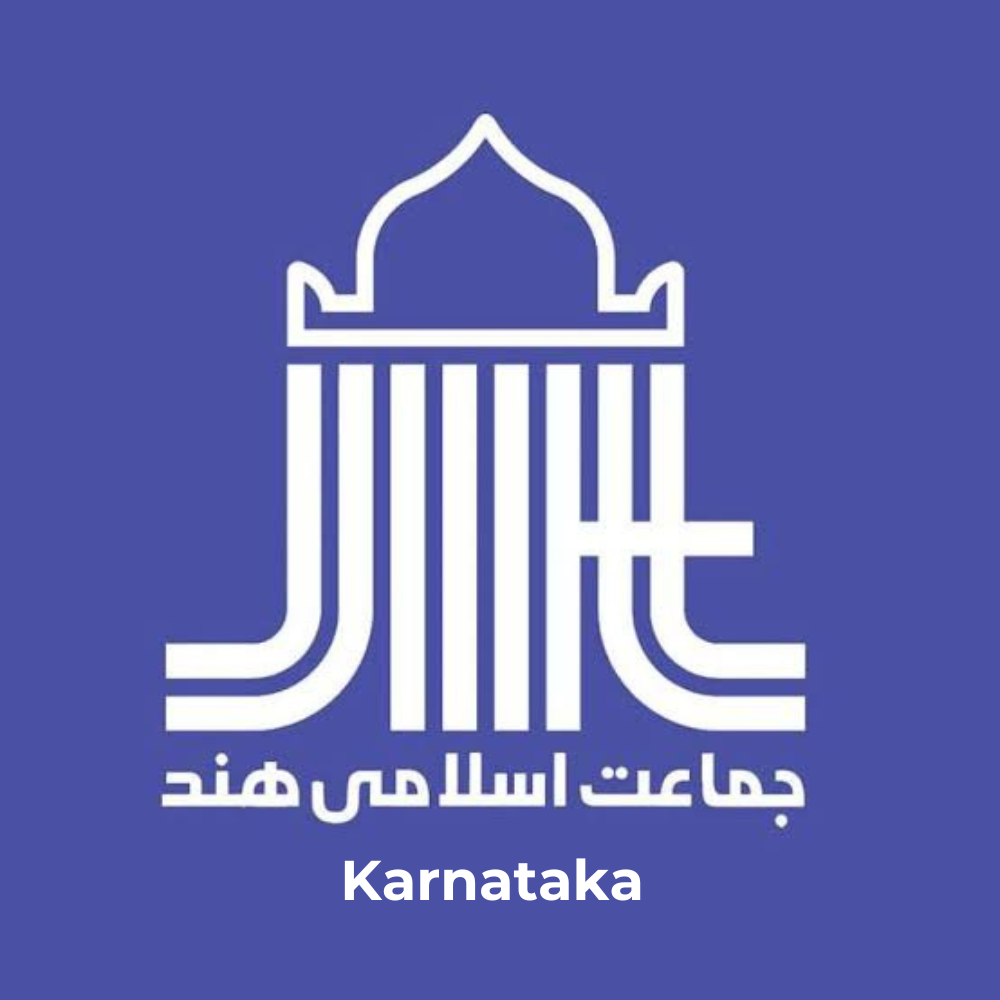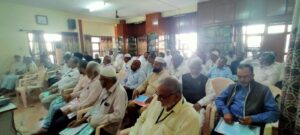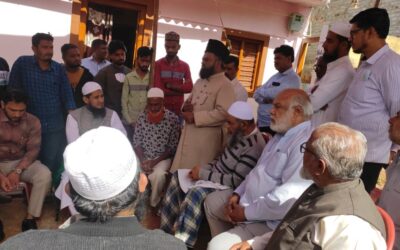A two-day workshop was organised by Jamaat-e-Islami Hind Karnataka Awqaf Cell at Shanti Sadan in Bengaluru on February 26 and 27.
The programme started with the recitation of the Holy Quran by Maulana Nafees Ahmad Qasmi.
In his keynote address, Ameer-Halqa Karnataka, Dr Belgami Mohammed Saad said Islam is a system of life and waqf and its properties are part of Islam. The protection of waqf properties is the collective duty of the Muslim community. Waqf is an important aspect of Islamic law and a beautiful chapter in Muslim Ummah’s history, he added.
While commenting on the legal status of waqf, Dr Muhammad Razi-ul-Islam Nadvi, Secretary, Shariah Council, Delhi, said that almsgiving and charity are highly valued in Islam. It is highlighted throughout the Qur’an and Hadith. The main distinction is that in waqf, what is being waqf must be taken out of the waqif’s ownership, Allah Almighty must be made its owner, and the riches must be safeguarded for the benefit of the public. Waqf property cannot be sold or financed in any way.
The prophetic era provides evidence of waqf. One of Prophet Muhammad’s (may peace be upon him) assets was allocated for tourists.
Hazrat Mukhairiq had donated all his possessions to the Messenger of Allah on the occasion of the Battle of Uhud, and after his martyrdom, he had devoted all of Mukairiq’s riches to waqf. Usman (may Allah be pleased with him) bought a well called Roma from a Jew and dedicated it to all the residents of Madina. Similarly, Hazrat Umar devoted his Khyber land, whereas Hazrat Abu Talha dedicated his valuable palm grove.
Inspired by the Prophet’s (peace and blessings of Allah be upon him) action, Muslims of all generations and regions have been donating a considerable portion of their property to waqf., and have built mosques, madrasas, travellers guesthouses, hospitals, cemeteries, etc.
There are huge endowment properties in every state of India. But it is also a fact that many properties have been lost, taken over by governments, and misappropriated by many Muslims themselves. Muslims should be active and try to recover the occupied endowments and put them to good use. Every state urgently requires some dedicated, patriotic Muslims to help free the occupied endowments and put them to good use — provided the endowments are adequately protected and income is generated from them. Once this happens, the Muslim community will be able to effectively emerge from this crisis.
Speaking about the situation of waqf in the country, Mr Akram Al-Jabbar, retired Chief Commissioner of Pune, said over 8,00,000 acres of land has been set aside across the country, most of which has been taken over by the government, political personalities, and even Muslims. It is a difficult task to free these properties from encroachments.
The workshop featured an intriguing discussion on practical strategies to safeguard waqf properties from encroachments.
The event drew participants from Bidar, Gulbarga, Bijapur, Mangalore, Raichur, Tumkur, Bangalore, Mysore, Belgaum, and Davangere.
RTI activist Shafee Ahmed, imparted training on using RTI tools.
Mr Hussain Hooda, Mr Ibrahim Mullah Gadag, and Dr Sameer Kalbergi spoke on the topic ‘Practical approach for the protection of endowed properties’. He emphasised on the need to maintain records, have a good liaison with the administration, and if required, file an FIR too. The panelists were of the view that professional documentation should be done in all cases
Maulana Labelled Shafi’I, President, Youth Solidarity Moment Karnataka, presented an enlightening Tazkir-bil-Hadith before the gathering.
An informative and interesting panel discussion was held on the topic ‘Issues and challenges in wakf protection and better utilisation. Janab Saleem Mulla Poona, Janab Akram Al-Jabbar Poona, Advocate Sarfaraz Mangalore and Janab Naseer Ahmed MLC were the panelists. Advocate Muqtadir anchored the event. Mr Malik Motasim Khan, Secretary, Jamaat-e-Islami of India, presided over the panel discussion.
Points covered in the discussion include:
- Survey of endowment properties
- Registration of endowment properties in revenue record
- Expenses on registration
- Request to exempt GST on endowment properties and to pay GST on the endowment income
- Lack of preparing the record on time
- Unfamiliarity with Endowment Act
- Ineffectiveness of Board Legal Team
- Establishment of a task force to safeguard the endowment properties
- Utilisation of waqf revenue in a proper way so as to give timely help to the poor, the needy, besides the collective development of the Muslim community, educational, corrective and welfare work.
Mr Mujeebullah Zafari, Senior Officer and Former CEO of the Karnataka Board of Waqf outlined the actions taken by the Karnataka government and its initiatives, and said, “There are 5,675 cemeteries and 1,679 Eid Gah registered in Auqaf.” One lakh seventeen thousand acres of land has been declared as waqf land and has been registered with the Karnataka Board of Auqaf. There is a lot of work that has to be done to safeguard, maintain, and renovate it. There are several government programmes that the community must utilise. Advantage should be taken of Prime Minister Jan Vikas Kariyakram’s resources”.
He then elaborated on the wakf management system. Questions and answers session followed both these discussions
While expressing his views on the introduction and cooperation of endowment organisations, Mr Mohammad Yousuf Kanni, Mauvin Ameer-e-Halqa, said: “The protection of endowment properties is actually a journey from one world to another.”In this regard, laziness, frustration, and stagnation pave the way for the decline. Sectarian organisations are spreading false propaganda regarding endowment properties. He insisted on working as a team.
The two-day workshop provided an opportunity for open house questions. Attempts were made to give satisfactory answers to the participants.
Outlining the plan of action in the last session, Mr Kanni said it is necessary to end despair with the word endowment and build trust in each other. On that basis, great deeds can be done. Piety (fear of God) should be the basis of this work.
In his concluding remarks, the Hon’ble Secretary said there are two ways of working. “One is ethics and the other is the law. Without ethics, there would be no success, and without the law, there would be no progress. In the past, our elders have dedicated a large amount of their property to us, but due to lack of protection, our property seems to be going out of hand. Set the records right. Trustees are not masters, they are just servants. Knowledge, ethics, and skills strengthen economic credibility. There is a need to focus on better deeds in the nation and society”.
Mr Rafiq Ahmed, President of the Karnataka Endowment Cell, delivered the opening remarks. Mr Syed Saifuddin, Nazim Ijtema, presented a vote of thanks. As many as 80 representatives from all districts of the state attended the workshop. A PowerPoint presentation was made to clarify the points in the programme and documents were provided.




0 Comments